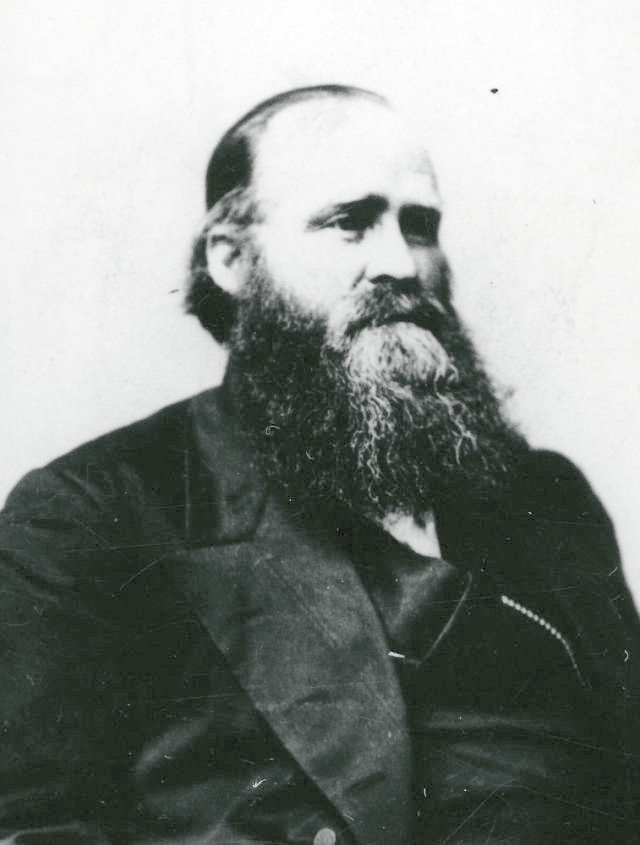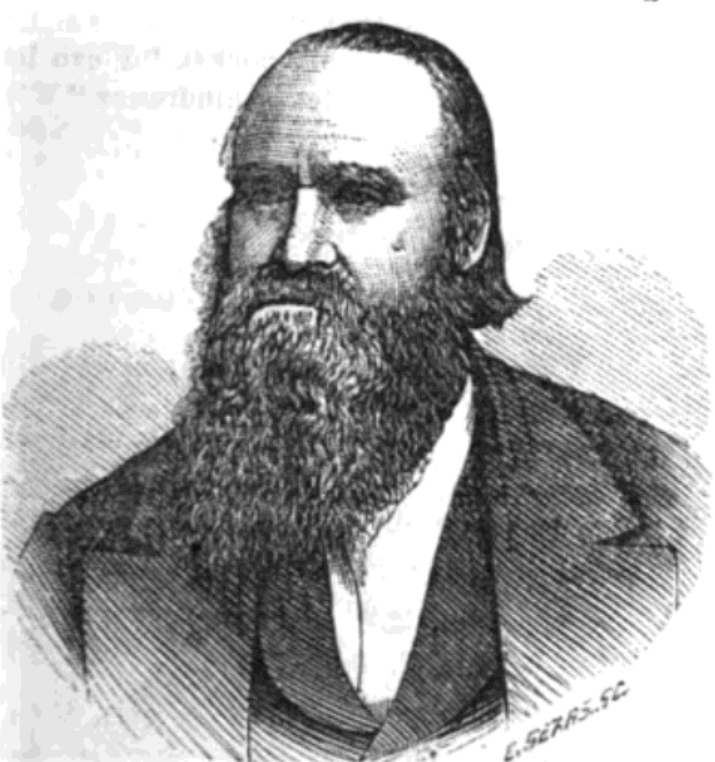Amasa Mason Lyman
(1813-1877)


By Susan Easton Black
Amasa had a turbulent childhood and youth. His father abandoned the family. When his mother remarried, Amasa was sent to reside with his grandparents. When they died, he was sent to live with an uncle. What brought him peace during these difficult years was his belief in God. He sought with youthful might “to break off my sins in righteousness and my iniquities by turning to the Lord.”1
At age nineteen, while living with his uncle, Amasa entered baptismal waters on April 27, 1832. His baptism proved offensive to his uncle. Without so much as a word to dissuade him from leaving, Amasa left his uncle’s home and journeyed to Kirtland, Ohio, with a few belongings and a sum of $11.13.
In Kirtland, Amasa met the Prophet Joseph Smith. “There was nothing strange or different from other men in his personal appearance,” he said,
yet when he grasped my hand in that cordial way (known to those who have met him in the honest simplicity of truth), I felt as one of old in the presence of the Lord; my strength seemed to be gone, so that it required an effort on my part to stand … and the still small voice of the spirit whispered its living testimony in the depths of my soul, where it has ever remained, that he was the Man of God.2
Amasa eagerly accepted mission calls from the Prophet Joseph to serve in West Virginia, Pennsylvania, and New York. When he returned to Kirtland, he enlisted in Zion’s Camp and marched with the Prophet Joseph to Missouri. Of the journey, he wrote, “We pursued our anomalous and strange journey, the vicissitudes of which afforded us ample opportunity to evince our faith by offering our lives for the truth.”3
After the march to Zion, Amasa served short missions in Ohio before joining the majority of the Saints in Far West, Missouri, in 1837. He endured religious persecution in Missouri and was imprisoned in Richmond, released, and then threatened with mobbing. Of his sufferings, Amasa wrote, “I have nothing to say, only let silence cover them till the Avenger of our Wrongs shall reward our enemies according to their works.”4
When he settled in Nauvoo, Illinois, Amasa and his family hoped that they had finally found peace. He accepted a call to serve as a counselor in the high priests quorum (D&C 124:136). In August 1842 he was called to fill the vacancy in the Quorum of the Twelve Apostles created when Orson Pratt left the fellowship of the Saints. When Orson Pratt returned to the faith, the vacancy in the quorum was filled. In January 1843 the Prophet Joseph Smith said, “I can take Amasa into the First Presidency,” with the intention that he would take the place of Sidney Rigdon.5 When the Latter-day Saints upheld Sidney Rigdon in the First Presidency, Joseph Smith appointed Amasa as a counselor to the presidency until there was a vacancy.
Following the Martyrdom, a question arose as to Amasa’s views on the future leadership of the Church. He said, “I do not rise to electioneer. I am gratified with the open, frank and plain exposition of President Young. … I have been at the back of Joseph Smith, and will be at the back of the Twelve forever, and then we will be saved.”6
On August 12, 1844, Amasa was called to the Quorum of the Twelve Apostles. “Whether I rise or fall,” he said, “heed the advice of President Young, he is the one to look to for counsel in all things pertaining to the kingdom of God.”7 While serving in the European Mission, Amasa preached that the Atonement of Christ was not necessary. He was called before the Quorum of the Twelve Apostles to explain his teaching. He confessed and apologized. However, when it was found that he was expounding the same teaching, Amasa was released from the Quorum of the Twelve Apostles. In 1870 he was excommunicated from the Church. He then associated himself with the Godbeites, an apostate organization. Amasa died on February 4, 1877, in Fillmore, Utah, at age sixty-three.
1. Albert R. Lyman, Amasa Mason Lyman, Trailblazer and Pioneer from the Atlantic to the Pacific, ed. Melvin A. Lyman (Delta, UT: Melvin A. Lyman, 1957), 11.
2. Andrew Jenson, Latter-day Saint Biographical Encyclopedia (Salt Lake City: Andrew Jenson History, 1901), 1:97.
3. Lyman, Amasa Mason Lyman, 43.
4. Lyman, Amasa Mason Lyman, 102.
5. History, 1838–1856, volume F-1 [1 May 1844–8 August 1844], 298.
6. History, 1838–1856, volume F-1 [1 May 1844–8 August 1844], 300.
7. Lyman, Amasa Mason Lyman, 249.
